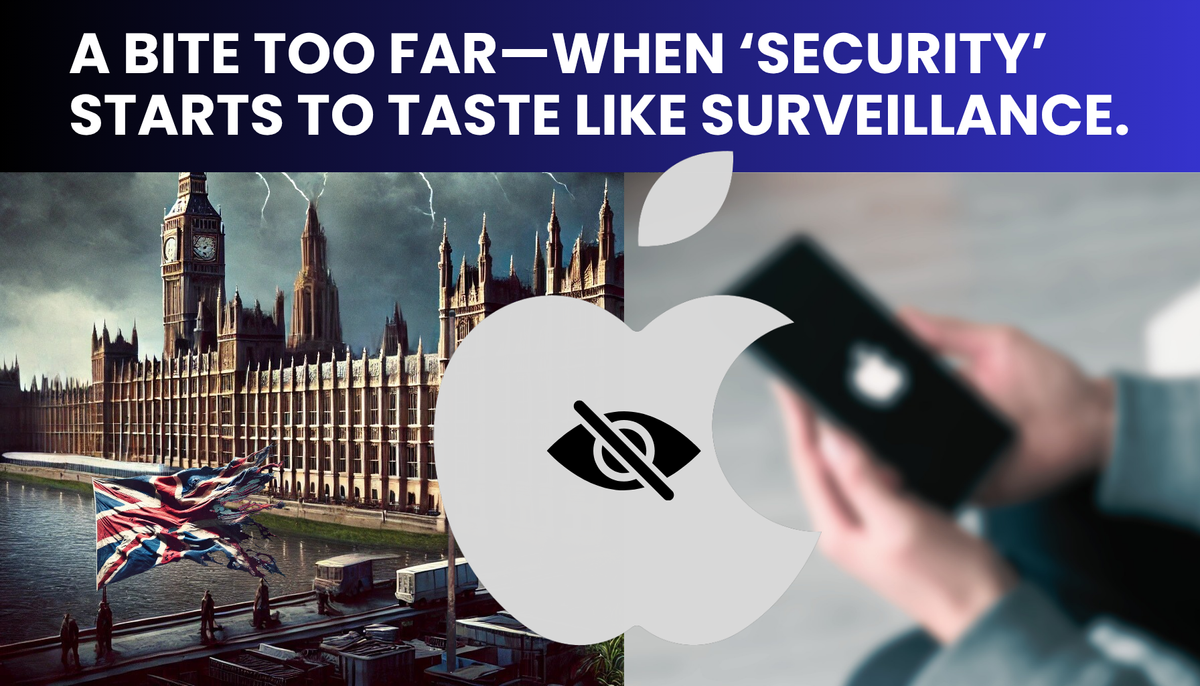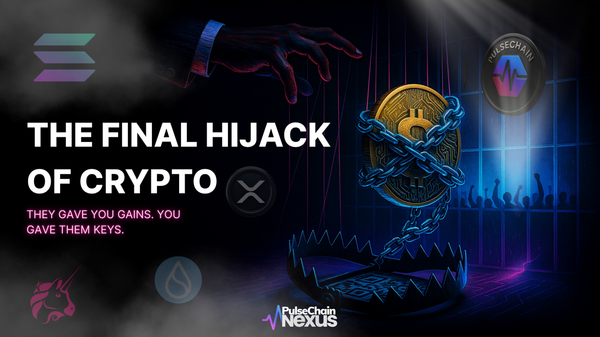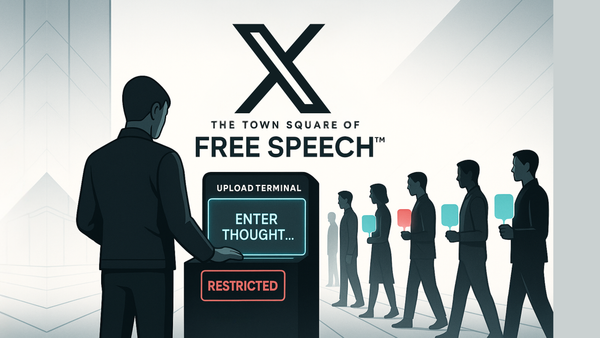Apple’s Retreat: Has the UK Government Just Gained Access to Your Private Data?
Does the UK government now have a backdoor into your messages and camera roll? Is this the biggest privacy breach in Western civilization? And most importantly—how does this affect you going forward?

Did Apple just roll over and hand the UK government a golden key to your personal files, photos, and messages?
It certainly looks that way. In a move that has set off alarm bells among privacy advocates, Apple has silently removed its most powerful security feature for UK users—Advanced Data Protection (ADP). This feature was the final layer of defense stopping governments (and even Apple itself) from accessing your iCloud-stored data.
So what does this actually mean for you?
Does the UK government now have a backdoor into your messages and camera roll? Is this the biggest privacy breach in Western civilization? And most importantly—how does this affect you going forward?
Let’s break it down.
What Was Advanced Data Protection, and Why Did It Matter?
Apple’s Advanced Data Protection (ADP) was an end-to-end encryption system that ensured only you had access to your iCloud data. Not even Apple could decrypt it.
Think of it as a fortress—even if someone subpoenaed Apple, there was nothing they could hand over because they didn’t have the keys.
ADP protected:
✅ iCloud backups (including iMessages, photos, and documents)
✅ Notes & Reminders
✅ Safari bookmarks & history
✅ iCloud Drive files
Without ADP, Apple can now access your data, which means the UK government can demand it.
And here’s the kicker—Apple didn't just disable ADP for UK users. They outright removed it. That means even existing users who enabled it will be forced to turn it off.
So why would Apple do this?
Why Did Apple Remove ADP in the UK?
The decision comes after pressure from the UK government under the Investigatory Powers Act (IPA) 2016, also known as the "Snooper’s Charter."
This law allows the UK government to:
✔️ Demand access to user data from tech companies
✔️ Force companies to weaken encryption (or outright remove it)
✔️ Conduct mass surveillance without user consent.
Apple had been fighting against this for years. In fact, they openly opposed proposed changes to the law in 2023, stating they would sooner pull services from the UK than weaken security.
Yet, here we are. Apple just caved.
The UK government effectively told Apple:
"Either give us the keys or you don’t operate here."
And Apple complied.
So, What Data Can the UK Government Now Access?
Without ADP, all iCloud-stored data is now decryptable upon request. Here’s what that looks like:
Now Accessible with a Government Warrant:
✅ Your Photos & Videos (if backed up to iCloud)
✅ Your Messages (iMessage, SMS, WhatsApp backups if stored in iCloud)
✅ Your iCloud Drive (documents, PDFs, notes, reminders, and backups)
✅ Your Safari browsing history (if iCloud Sync is enabled)
✅ Your Email (if using iCloud Mail)
Still Secure (For Now):
⛔ iMessage & FaceTime (protected by end-to-end encryption unless backed up)
⛔ iCloud Keychain (passwords)
⛔ Health app data
But here's the question—do you trust that the UK government won’t push for more?
They've already forced Apple to remove encryption once. What’s stopping them from demanding a backdoor into iMessage next?
How Will the UK Government Access This Data?
The UK’s Investigatory Powers Act provides three main ways for the government to demand user data:
1️⃣ Targeted Requests – If law enforcement wants access to a suspect’s iCloud data, they can now legally compel Apple to hand it over.
2️⃣ Mass Data Collection – The government has the ability to collect bulk user data without notifying individuals.
3️⃣ Real-Time Surveillance Powers – The UK can force companies to build surveillance capabilities into their systems (though Apple has resisted this in the past).
Previously, Apple could simply say, “We can’t help you, we don’t have access to that data.”
Now? That defense is gone.
Why This Is a Privacy Nightmare
This isn’t just about criminals being caught. This affects everyone.
Journalists & Whistleblowers: Their confidential files are no longer truly private.
Political Dissidents & Activists: What happens if a future government abuses this power?
Everyday People: Your messages, photos, and location history are now accessible to the state upon request.
And let’s not forget: Governments get hacked.
If a UK government database containing iCloud backups is breached, who else suddenly has access?
What Can You Do to Protect Your Privacy?
If you don’t want your data sitting on Apple’s servers, waiting to be accessed, here’s what you can do:
✅ Turn Off iCloud Backups → Store sensitive data only on your device.
✅ Use Local Storage → Move files, photos, and documents to an encrypted external drive.
✅ Use Encrypted Cloud Services → Consider alternatives like ProtonDrive or Sync.com.
✅ Stop Syncing Safari History → Use Brave or Firefox with private sync options.
✅ Use a VPN & Private Browsing → Minimize online tracking.
And most importantly—stay informed.
Final Thoughts: Is Britain Sleepwalking into Surveillance?
The removal of Apple’s most secure encryption tool isn’t just a technical change—it’s a fundamental shift in digital rights.
It sets a dangerous precedent.
Because if the UK government can force Apple to remove encryption from iCloud, what’s stopping them from demandin
🚨 A backdoor into iMessage?
🚨 The ability to scan private photos & files?
🚨 Real-time access to devices?
And what happens when other Western governments follow suit?
This isn’t just about the UK. If one domino falls, the rest will follow.
And when that happens—will anyone be able to protect their privacy anymore?
Or will we look back on this moment and realize this was when true digital freedom ended?
Over to You: What do you think? Is this justifiable in the name of security, or has Apple betrayed its users? And what will you do to protect your privacy?
Drop your thoughts below.
Want More Hard-Hitting Truth?
Join me at The PulseChain Nexus, where I break down the stories the mainstream won’t touch. Free subscriptions available.
Many thanks, Veritya





